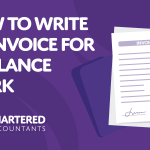Late payments can be a massive problem for small businesses. They impact cash flow, make growth harder and create unnecessary stress.
To help deal with the impact of late payment fees on small businesses, we’ve compiled this comprehensive guide on late payment fees, including whether you should charge your client, their legality and how you can create your own late payment fee system.
How Late Payments Affect SMEs
Late payments can have a profound impact on small and medium-sized enterprises (SMEs):
- Cash Flow Issues: Late payments disrupt cash flow, making it difficult for businesses to cover expenses such as rent, salaries and supplies.
- Growth Hindrance: Without a steady cash flow, SMEs may struggle to invest in new opportunities, hire additional staff or expand their business.
- Increased Costs: Late payments can lead to reliance on overdrafts or loans to bridge cash flow problems, which in turn increases borrowing costs.
- Wasted Time: Chasing debts is time consuming; time that could be better spent growing your business.
- Stress and Uncertainty: Not knowing when you’re going to get paid can lead to significant stress for business owners!
- Increased Bad Debts: The longer a customer takes to pay, the more likely it is the bad debt will turn bad.
What is a Late Payment Fee for a Small Business?
One way to address this problem is to create a late payment fee.
Businesses can charge late payment fees when customers don’t pay their bills on time. This fee can help encourage clients to pay on time and, if used, compensate the business for the inconvenience and potential financial strain caused by the delay.
Can I Charge a Late Fee on My Invoice in the UK?
Yes, you can include a late fee clause in your invoices, provided it is clearly stated in your payment terms and agreed upon by your client beforehand. The late fee can typically be a fixed amount or a percentage of the overdue payment. As always, make sure your terms are transparent and communicated at the outset of the business relationship.
Should You Charge a Late Payment Fee?
Charging a late payment fee can be an effective way to get customers to pay their invoices on time. However, it’s important to take into account the following factors:
- Client Relationships: While late fees can help prevent delayed payments, they can also strain client relationships, especially if the fees are unexpected. Clear communication is key.
- Industry Norms: In some industries, late payment fees are standard, while in others, they might be considered aggressive. Research what is typical in your industry.
- Financial Impact: Weigh the potential economic benefits against the risk of damaging client relations. If late payments are frequent and hurting your business, it might be worth the risk.
Can You Legally Charge Interest on Overdue Invoices in the UK?
Under UK law, small businesses have the right to charge interest on overdue invoices. According to the Late Payment of Commercial Debts (Interest) Act 1998, you can charge statutory interest at a rate of 8% above the Bank of England base rate. You are also entitled to claim reasonable debt recovery costs.
How to Implement Late Payment Fees Effectively
- Clear Contracts: Ensure that your contracts clearly outline payment terms, including due dates and the late payment fees that will apply if payments are overdue.
- Regular Reminders: Send regular payment reminders before the due date to prompt your clients to pay on time.
- Automate Invoicing: Use accounting software to automate invoicing and follow-ups. This reduces the likelihood of human error and ensures consistency.
- Be Consistent: Apply your late payment policy consistently to all clients to maintain fairness and credibility.
Late payment fees are a good way for small businesses to protect themselves from the financial strain of overdue invoices. They can help your business remain financially healthy, but it’s important you carefully consider how late payment fees will impact your client relationships and use clear communication during the process.
360, Chartered Accountants can help with all aspects of credit control and late payment fees, including system reviews, training and outsourcing credit control.




